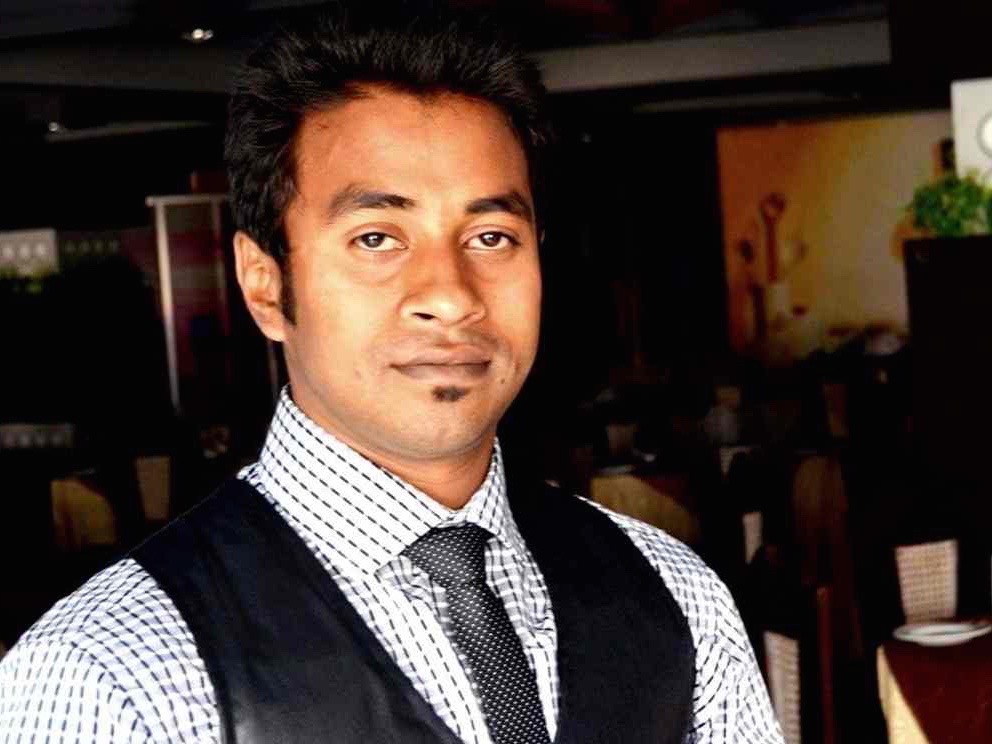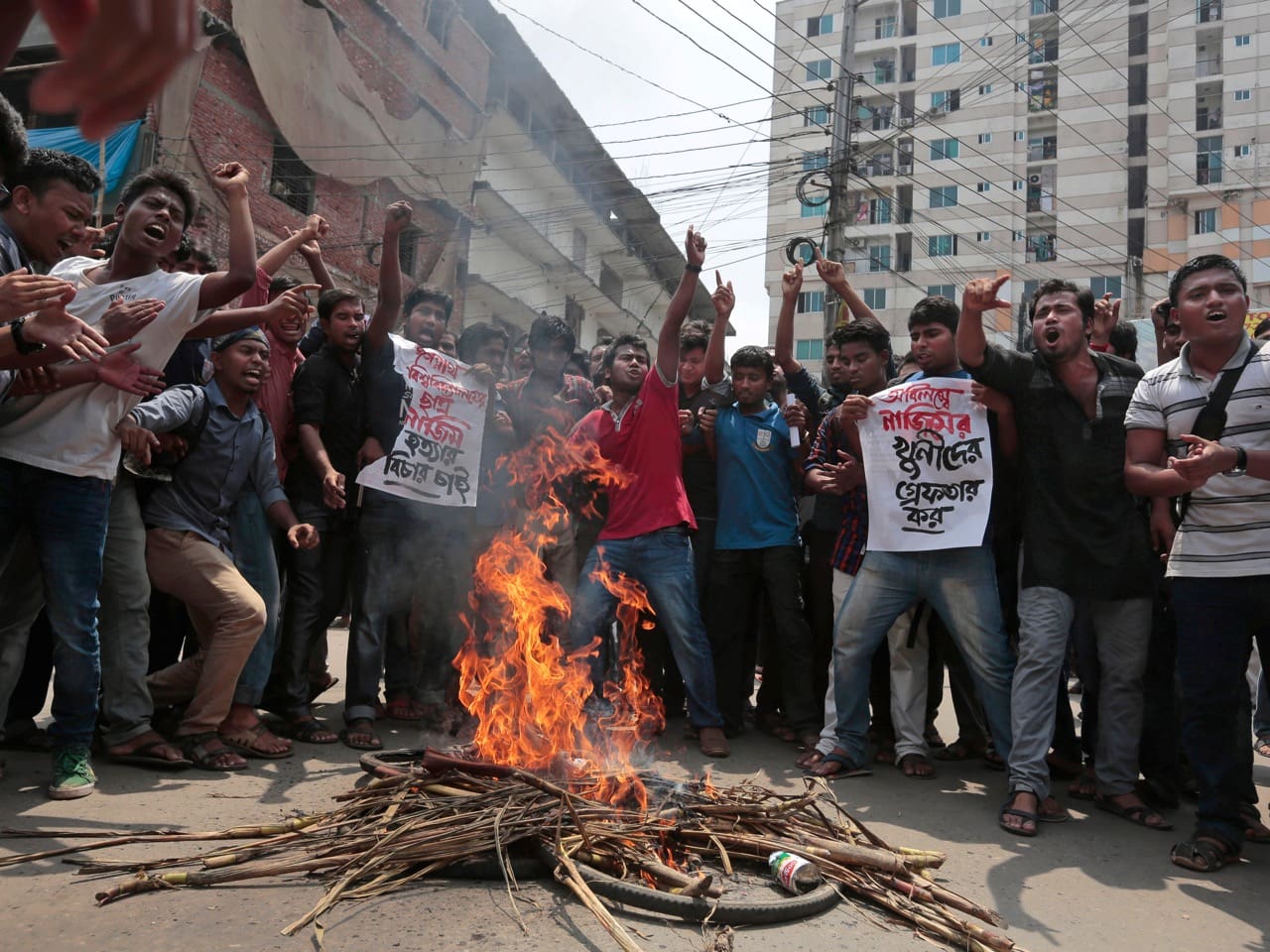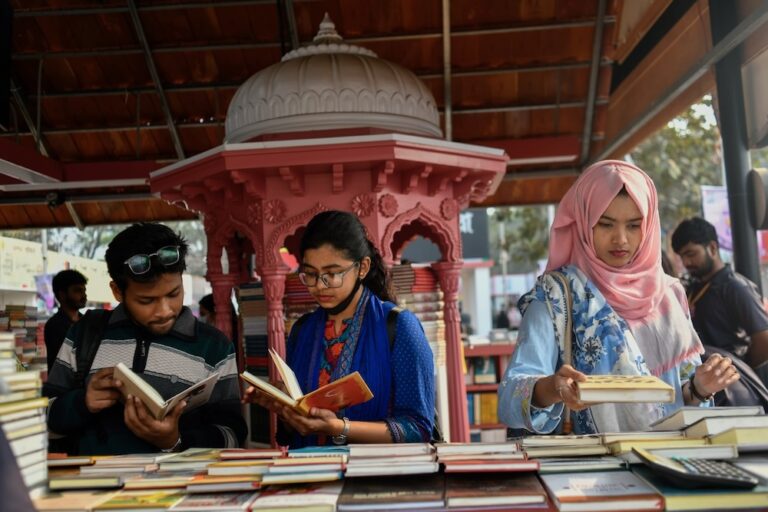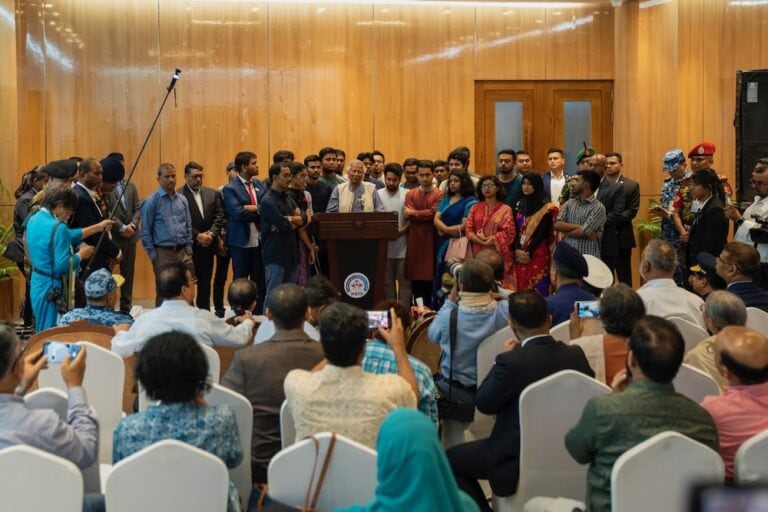The attack on university law student Nazimuddin Samad marks the sixth killing of secular writers or activists in Bangladesh since February 2015, and must serve as a catalyst for the authorities to do more to protect its writers and free thinkers.
This statement was originally published on pen-international.org on 7 April 2016.
Bangladeshi authorities should immediately investigate the murder of university law student, Nazimuddin Samad, in Sutrapur, Dhaka, on 6 April 2016 and bring all perpetrators to justice, PEN International and PEN Bangladesh said today. Samad’s death marks the sixth killing of secular writers or activists in the country since February 2015, and must serve as a catalyst for the Bangladeshi authorities to do more to protect its writers and free thinkers.
“On behalf of PEN Bangladesh, I am strongly protesting against this murder. We urge the government to trace and arrest these murderers and bring them to trial. At present Bangladesh authorities must protect the secular bloggers, activists, publishers and writers and ensure that these shocking incidents do not happen again,” said Dr. Syeda Aireen Jaman, Secretary General of PEN Bangladesh.
Samad was reportedly attacked with machetes at a busy intersection by three – as yet unidentified – assailants, who shot him before fleeing the scene on a motorcycle. No group immediately claimed responsibility for the attack. The authorities have opened up an investigation and are reported to believe that his assailants had been monitoring him for some time.
“The murder yesterday of Nazimuddin Samad, a secular activist in Bangladesh, is shocking given the nature of the crime. But the impunity with which militants have targeted and killed bloggers, writers, and activists in the past two years shows that the government has failed to ensure a secure environment in which people can express their views freely and without fear. The lack of progress in investigations and the poor record of prosecution do not inspire confidence. Bloggers and writers have said that when they have lodged complaints with authorities, they are advised not to write on controversial matters. Such actions strengthen the killers and further undermine freedoms in Bangladesh. The government must take urgent steps to investigate and prosecute those responsible for unleashing this reign of terror,” Salil Tripathi, Chair of the Writers in Prison Committee, said today.
Samad, aged 28, had recently moved to Dhaka from his hometown of Sylhet to take up his master’s degree at Jagannath University. He had regularly written against religion on his Facebook page and was critical of radical Islamists, according to reports. According to the Dhaka Tribune, Samad had expressed concerns over the country’s law and order in a Facebook post the day before his death. Police are reported to suspect that he was targeted for his outspoken stance on religion and his involvement in the protest movement, Gano Jagoron Mancha (roughly translating to National Awakening Stage). Gano Jagoron Mancha grew out of the February 2013 Shahbag protests, which called for prosecution of those accused of war crimes during the Bangladesh Liberation War of 1971, and punishment for those convicted, and for a clear delineation between religion and state.
Last year, five Bangladeshi freethinkers and writers were killed by assailants suspected to be linked to Islamist organisations, and still more were attacked and threatened. They were targeted for their writings critical of extremism and the country’s move away from secularism, rooted in its original 1972 Constitution. A growing climate of fear has been fed by impunity for these crimes, which has in turn led to further attacks on free thinkers and the release of new “hit lists”. The state’s inability to respond to these attacks has led many to go into hiding and some to seek refuge in other countries.

University law student Nazimuddin Samad, aged 28Facebook



